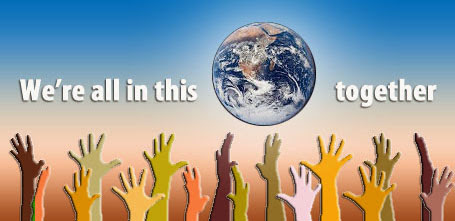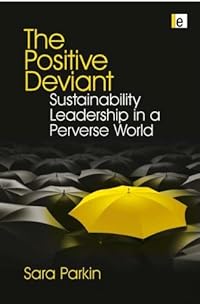We here in the middle of the Great Lakes take water for granted. Surrounded as we are by the greatest freshwater system on the planet, even those occasional pesky dry spells rarely give us pause to consider how blessed we are. The past two days has brought a pair of announcements that help me both appreciate our abundance and the growing scarcity of clean fresh water that much of the planet is faced with.
The summer of 2012 offered me the opportunity to visit with some leaders of the non-profit leaders in Senegal and Burkina Faso, both when they visited here and my visit there in July. It was visible to me that the effort just to bring water to their homes required significant effort, but the quality of water even when it was available was not good for human health.
Upon my return home I pursued the possibility of helping share the low input water filtration technology known as biosand filters. I was thrilled that my most admired company in Michigan,
Cascade Engineering, had a division that was manufacturing them. Cascade Engineering is Michigan’s first certified
 B-Corporation,
B-Corporation, a company designed for public benefit.
I started immediately to see if I could raise enough money to by and ship 50-100 of these filters back to my new friends in Burkina Faso.
As I was tying to understand what it would take to get those filters there I discovered through the help of those smarter than me, that as good a product as they are, the
Hydraid biosand water filters would cost too much to ship to Burkina Faso. The shipping was dramatically more costly than the manufacturing cost. Thus the funds that I raised would barely cover the costs of getting the trainers to Ouagadougou, let alone pay for the costs of the filters and their shipment.
While I was forlorn at learning this, another area activist with experience with Lansing’s Sister city
Akuapim South Municipal District in Ghana, identified a non-profit
Aqua Clara International, also based in Michigan that was using the same type of
biosand technology but with a social entrepreneur approach, wherein the filters could be manufactured in the local destination utilizing local materials. As I investigated this option further I was delighted to find out that one of the leaders of this effort was

Dr. Ted Loudon, an emeritus MSU Professor of Biosystems Engineering that I had worked with years earlier on utilizing food waste from campus in a biodigester.
Another serendipitous element found at the helm of the nonprofit was

Harry Knopke, formerly president of Aquinas College, where I worked many years earlier before Harry was president, but whom I had met several times through some higher education sustainability events.
After several meetings and some discussion via email with new friends in Burkina Faso, it began to look as though we might be able to connect Aqua Clara with the nonprofits in Ouagadougou. Based upon some preliminary information gathering it looked like we might be able to make this project work. But life is never quite so simple. One of my main contacts, Francois Bado, in all this was pulled away from his nonprofit leadership in Burkina Faso to be a human rights monitor for the African Union in neighboring Mali. Earlier in the year a coup in Mali had not only removed that visit from our original itinerary, but more importantly had unleashed a wave of refugees into northern Burkina Faso that the sixth least developed nation was hard pressed to support. Likewise our other two contacts in Ouagadougou who were trying to pull our project t together on that end, were called away for periods to work in the newly established refugee camps.
But patience paid off, as we finally got the pieces together. Trainers arrived in in Ouagadougou at the end of September and stayed for a week shopping for available materials and providing the training for a team of young men leaving them with enough funds to buy materials to construct many filters for distribution.
I received the report from the training team just yesterday along with the photos you see here. These types of filters will work best in rural areas and can provide filtered water for a family for up to six years with regular maintenance.
Filter sand being set out to dry along with coarse sand and ballast.
Different designs are now being considered for construction and use in the urban area (Ouagadougou is a city of 1,000,000) and we might help launch this with a Phase II fundraising effort. My great joy at the successful launch of this effort that took more than a year was tempered today by the receipt of this
report from the
Potsdam Institute of Climate Impact Research that indicates that increasing water scarcity will impact hundreds of millions before the end of the century.
"If population growth continues, by the end of our century under a business-as-usual scenario these figures would equate to well over one billion lives touched," Gerten points out.
"And this is on top of the more than one billion people already living in water-scarce regions today." Parts of Asia and North Africa, the Mediterranean and the Middle East are particularly vulnerable.
As Rebecca Solnit so evocatively depicts in the phrase borrowed for the title of this entry from her Book,
The Faraway Nearby, our kin in nature are more conscientious in their use of water. Perhaps we can learn from them before it is too late.
 To see the Food Waste Footprint video click here
To see the Food Waste Footprint video click here









 As
institutional investors, we have a duty to act in the best long-term
interests of our beneficiaries. In this fiduciary role, we believe that
environmental, social, and corporate governance (ESG) issues can affect
the performance of investment portfolios (to varying degrees across
companies, sectors, regions, asset classes and through time). We also
recognise that applying these Principles may better align investors with
broader objectives of society. Therefore, where consistent with our
fiduciary responsibilities, we commit to the following:
As
institutional investors, we have a duty to act in the best long-term
interests of our beneficiaries. In this fiduciary role, we believe that
environmental, social, and corporate governance (ESG) issues can affect
the performance of investment portfolios (to varying degrees across
companies, sectors, regions, asset classes and through time). We also
recognise that applying these Principles may better align investors with
broader objectives of society. Therefore, where consistent with our
fiduciary responsibilities, we commit to the following:



